Why India needs to remember 'forgotten' fallen of world wars
- Published
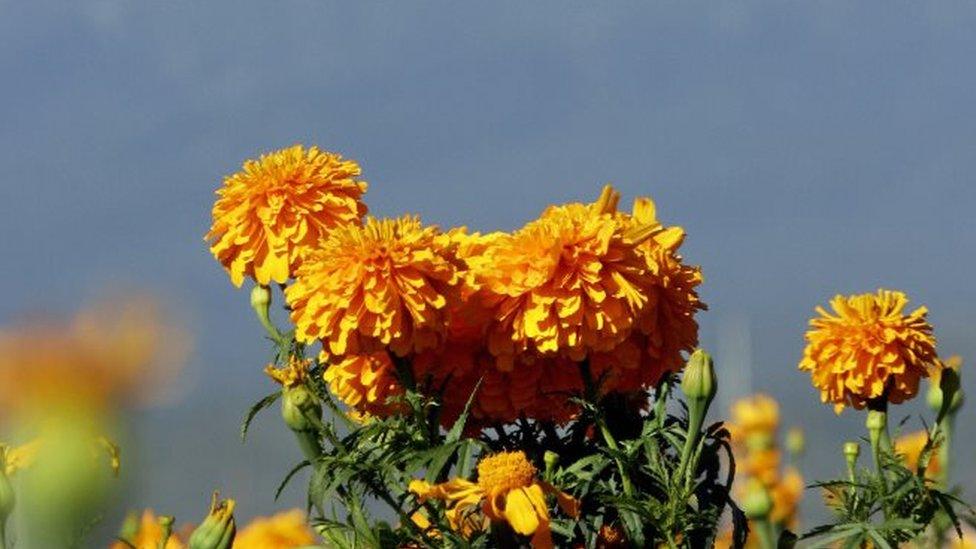
A new campaign is using the marigold as a symbol to commemorate the sacrifices of Indian soldiers in world wars
A new flower could be joining the poppy as a symbol of remembrance.
This week it was proposed that the marigold be used to commemorate the sacrifice of Indian soldiers. It is part of an effort to create a culture of remembrance of those lost in the service of the Indian Armed Forces in the two world wars.
Almost one and a half million Indian soldiers took part in World War One, fighting in battles in far-away lands, and in conditions entirely alien to them.
Even more fought in World War Two.
By 1945 over two and a half million men had signed up to fight for the Allies - the largest volunteer army in history.
And they made huge sacrifices in both conflicts. More than 160,000 Indian soldiers lost their lives.
Yet, because those wars were fought while India was still part of the British Empire, they have tended to be ignored in India, dismissed as part of the colonial past.
A new campaign, India Remembers, aims to change that.
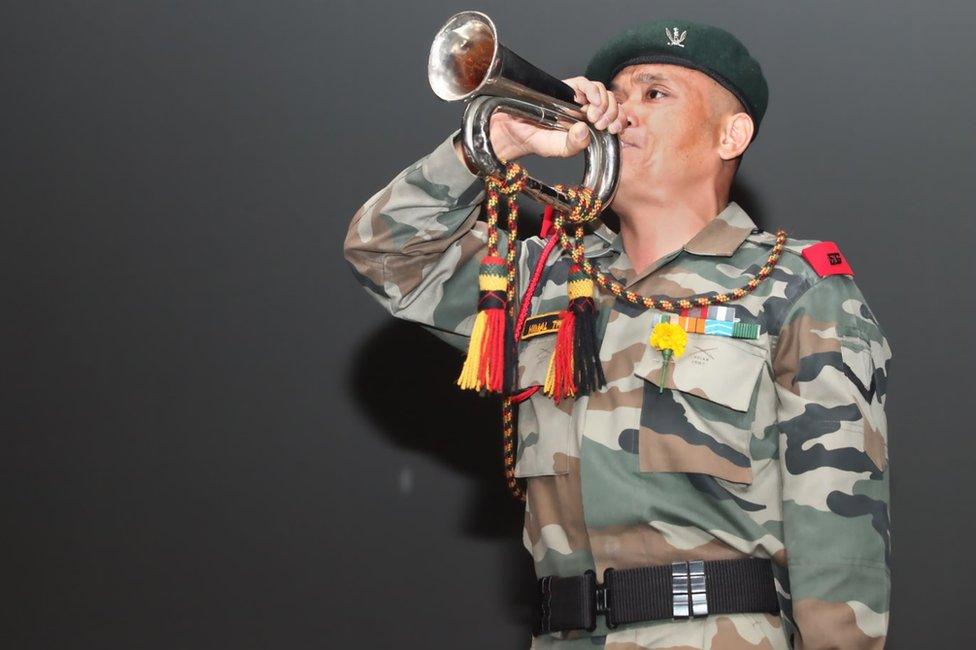
A new campaign, India Remembers, wants India to remember its fallen world war soldiers
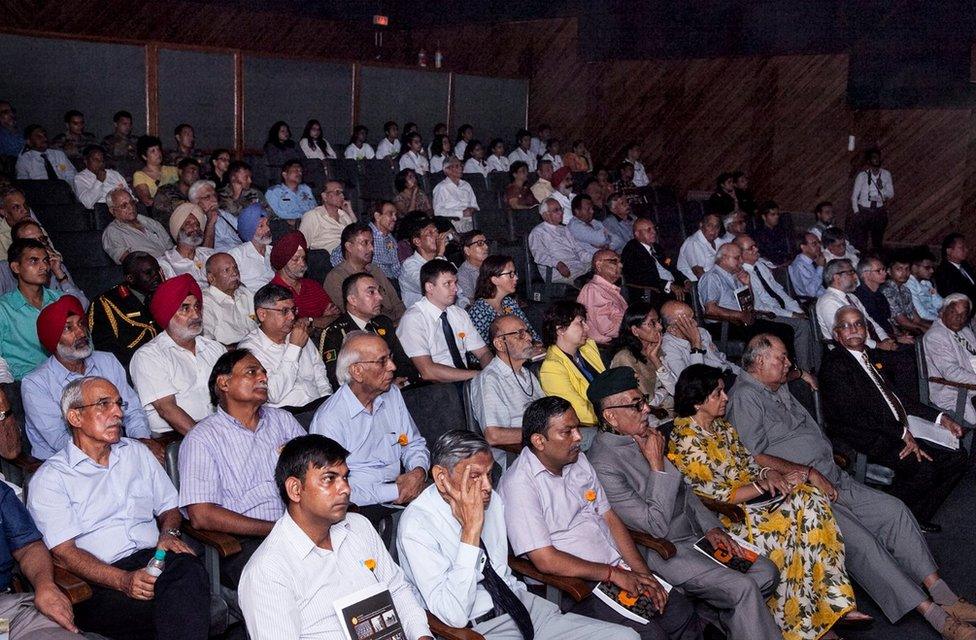
War veterans, army officers and school children took part in the commemoration event
Colonial past
It is behind the suggestion that India adopt the marigold as the national flower of commemoration. It also proposes that the country dedicate 7 December as an official day of remembrance.
Hundreds of people attended the campaign launch: senior military officers alongside school children and the relatives of those who have laid down their lives for the country.
It was timed to mark the centenary of a historic cavalry charge led by Indian horsemen on the German trenches of the Somme.
The horses and their riders did not fare well against the enemy machine guns, admits Squadron Leader Rana Chhina, who is in charge of the India Remembers effort.
But, he says, it is a classic example of the valour frequently demonstrated by Indian servicemen. Valour which he believes is in danger of being forgotten completely.
He understands why, in the effort to distance itself from its colonial past, Indian governments have tended not to make any great effort at remembrance. But he believes it is time that changed.
"Remembrance is not a call to jingoistic fervour," Chhina emphasises, "but a time for silence and reflection."
"Each number added to a stone memorial, each gravestone, represents a life lost, a family forever bereaved and a sacrifice, which must never be forgotten."
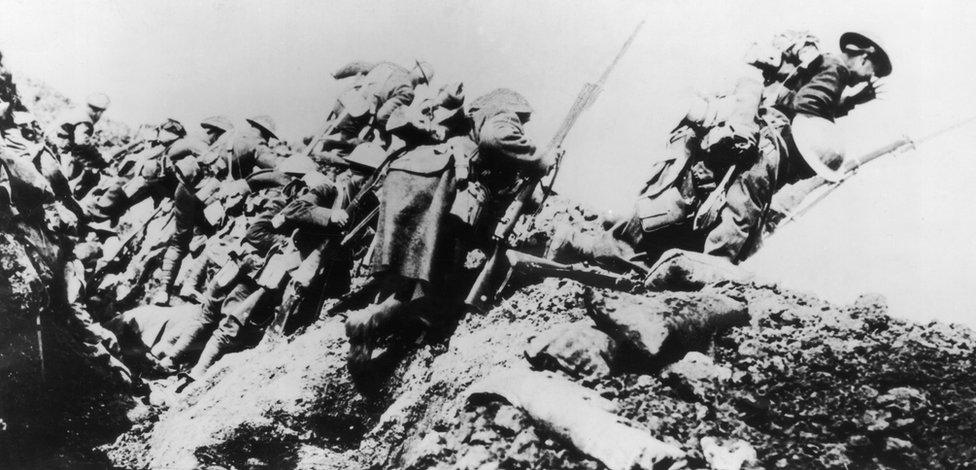
British troops climbing from their trench on the first day of 'The Big Push' on the Somme during World War One
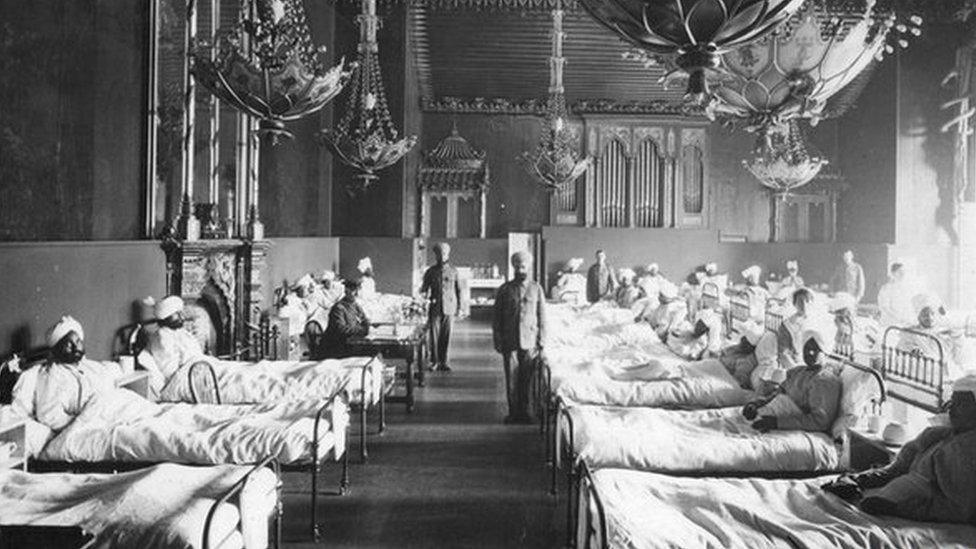
Indian soldiers who died during WWI while in the Indian military hospital at Brighton's Royal Pavilion are buried at Brookwood
And there is evidence that Indians are growing more curious about the role their relatives played in these epic conflicts.
The Commonwealth War Graves Commission, which looks after the graves and memorials for the 1.7 million service personnel who died in the world wars, says it has noticed a significant increase in the number of enquires from India.
"Lots of Indian people want to find out more," says the commission's publicity director, Colin Kerr.
"They are vaguely aware that my great grandfather from this village in Punjab, or wherever, was involved in the battle of the Somme or the battle of the El Alamein - and they just want to find out more about it. We are acting as a catalyst with our friends here to give them that information."
He concedes that war graves and other memorials have not always celebrated the contribution of Indian and other Commonwealth soldiers, as well as they should.
Forgotten heroes
My colleague Hugh Sykes sent me pictures of the memorial to those who died in the now almost forgotten Mesopotamian campaign of World War One and whose graves are not known.
It now stands in the desert outside the Iraqi city of Basra.
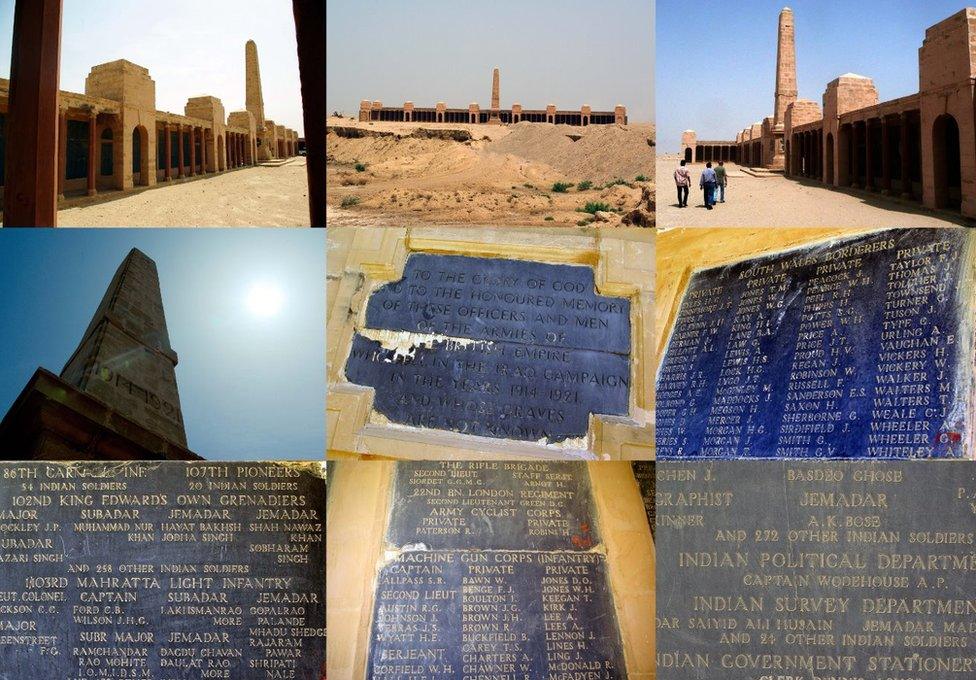
A memorial to those who died in the Mesopotamian campaign of World War One now stands in the desert outside the Iraqi city of Basra
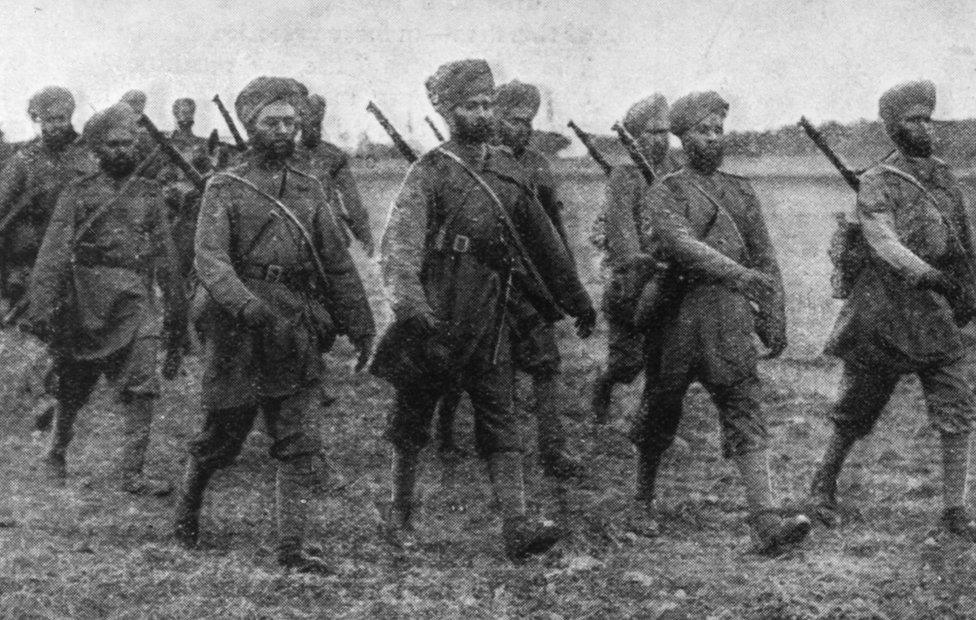
Almost one and a half million Indian soldiers took part in World War One
The fallen British soldiers are each named, an honour however, that is only accorded to the Indian officers.
The deaths of the non-commissioned men are commemorated by regiment but simply as "and 258 other Indian soldiers" or "and 272 other Indian soldiers".
Colin Kerr says this is an issue with a number of memorials, and says it is something the commission has now made it a priority to rectify.
He says a total of 30,000 Indian soldiers are not named on the Basra memorial but, he says, the commission knows who they are and has launched a project to find ways to publicise them both in India and in Britain.
Every service person who sacrificed their life in the two world wars should and will be commemorated, he assures me.
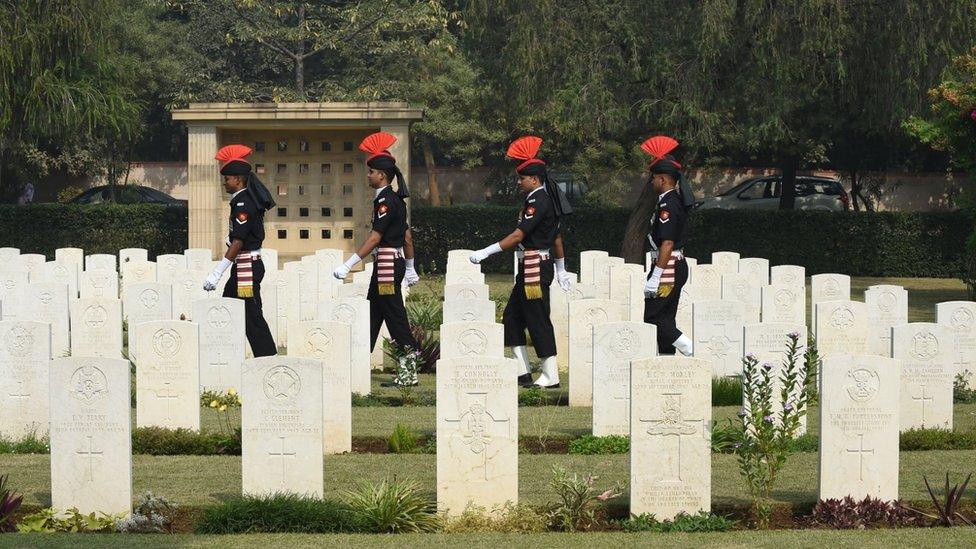
The Commonwealth War Graves Commission manages the Delhi War Cemetery
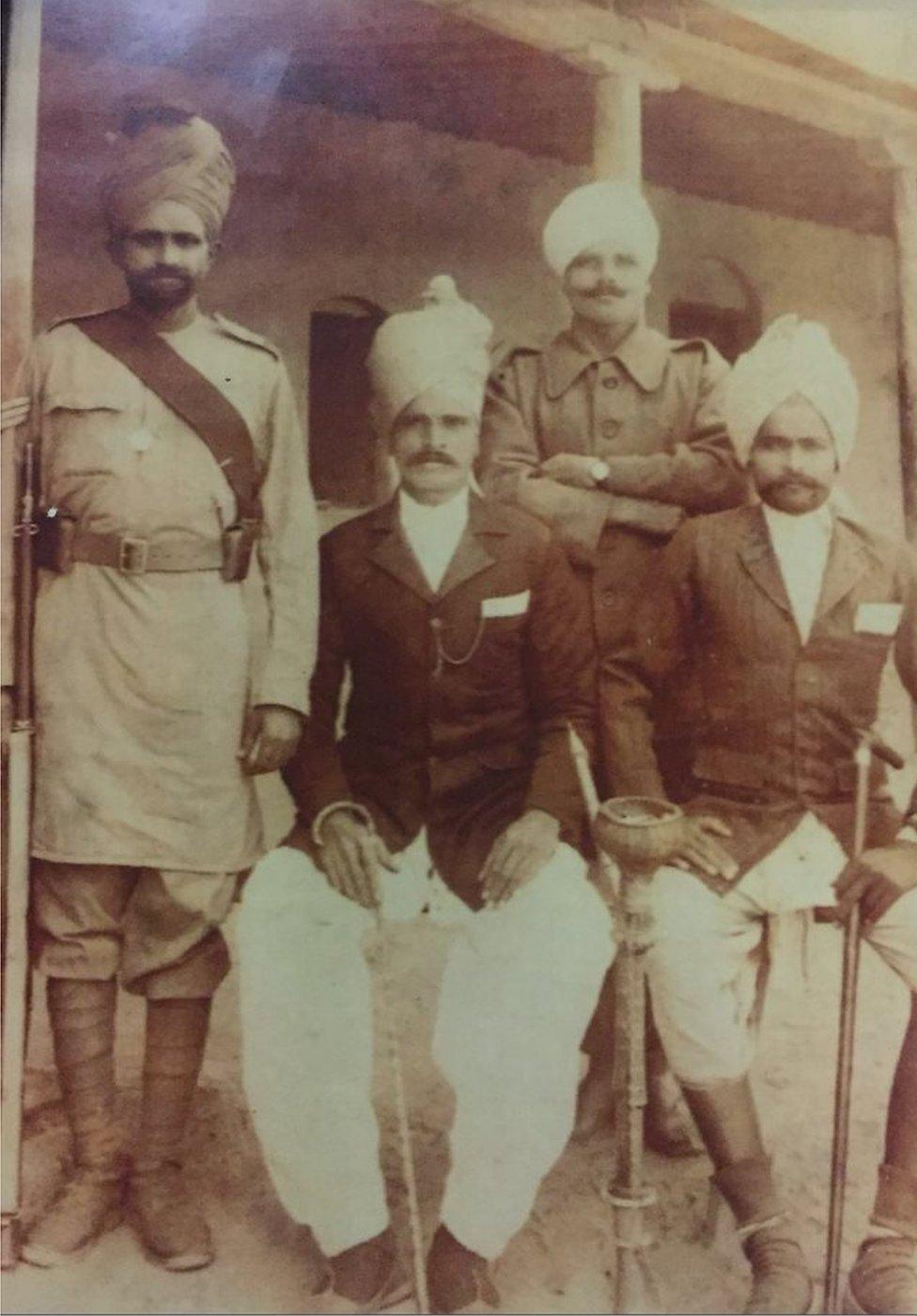
Subedar Pat Ram (centre) had fought with the 99 Deccan Horse Regiment
During the tea break I happened to meet Colonel Raj Singh, the grandson of one of the Indian soldiers who served in Iraq during World War One.
He told me Subedar Pat Ram had fought with the 99 Deccan Horse Regiment. He was one of more than 300,000 men deployed by the British in the Mesopotamian campaign.
Pat Ram died in a Turkish prisoner of war camp in Turkey on 28 August 1917, one of 40,500 allied troops the commission estimates were killed.
Raj Singh gave me one of the best arguments for remembrance I have ever heard.
"If you remember him he is still with you, he is still alive," he said.